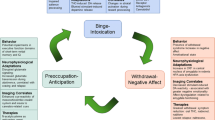Abstract.
Rationale: Prepulse inhibition (PPI), a cross–species measure of sensorimotor gating, is impaired in certain neuropsychiatric disorders. This study was designed to assess caffeine effects on PPI in normal humans, as part of an effort to understand cross-species differences and similarities in the neurochemical regulation of PPI. Methods: Startle was measured during a screening session; 7 days later, subjects were retested after placebo or caffeine (200 mg; double-blind design). Subjects were characterized as low versus high caffeine drinkers based on established scales (range 11–628 mg/day), and either maintained ad libitum caffeine intake (Ad lib study; n=18) or refrained from caffeine consumption for ≥15 h prior to testing (Withdrawal study; n=12). Autonomic and self-rating measures, acoustic and tactile startle, and unimodal and cross-modal PPI, were measured in divided sessions for 3 h post-treatment. Results: There were significant effects of caffeine and/or caffeine withdrawal on several self-rating and autonomic measures, and on startle reflex habituation, but not on acoustic or tactile startle magnitude or PPI. Difference scores of startle data from screening versus test days revealed no group effects on startle magnitude, but PPI difference scores revealed that caffeine had opposite effects on low versus high caffeine drinkers (means=57 versus 258 mg/day) in the two withdrawal states. In the absence of withdrawal, caffeine reduced PPI in heavy caffeine drinkers; during withdrawal, caffeine increased PPI in heavy caffeine drinkers. The opposite pattern was evident in low caffeine drinkers. Conclusions: While a physiologically active dose of caffeine has no simple effects on PPI in normal humans, both withdrawal states and normal levels of caffeine consumption may be important factors in understanding this drug's effects on sensorimotor gating.
Similar content being viewed by others
Author information
Authors and Affiliations
Additional information
Electronic Publication
Rights and permissions
About this article
Cite this article
Swerdlow, N., Eastvold, A., Gerbranda, T. et al. Effects of caffeine on sensorimotor gating of the startle reflex in normal control subjects: impact of caffeine intake and withdrawal. Psychopharmacology 151, 368–378 (2000). https://doi.org/10.1007/s002130000490
Received:
Accepted:
Issue Date:
DOI: https://doi.org/10.1007/s002130000490




